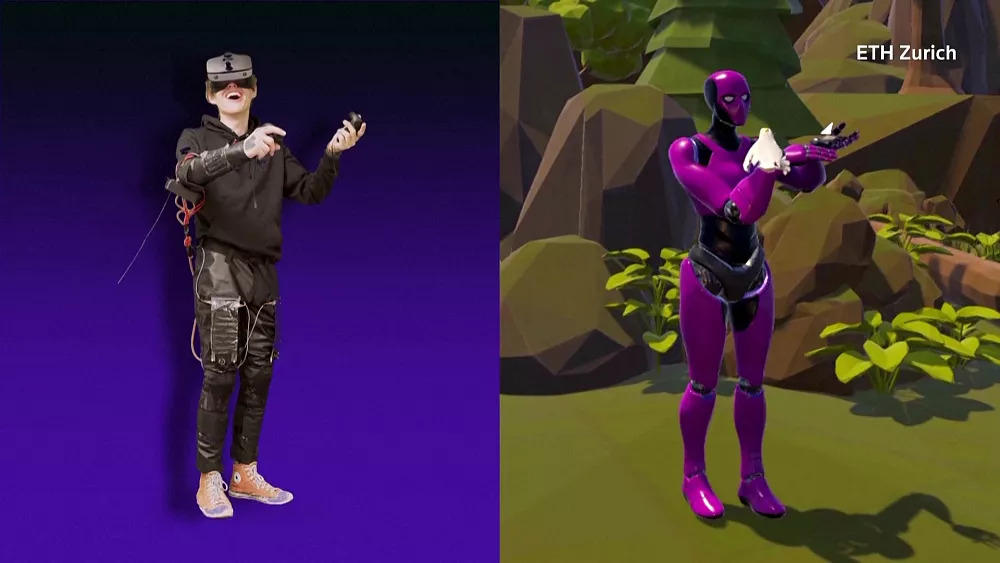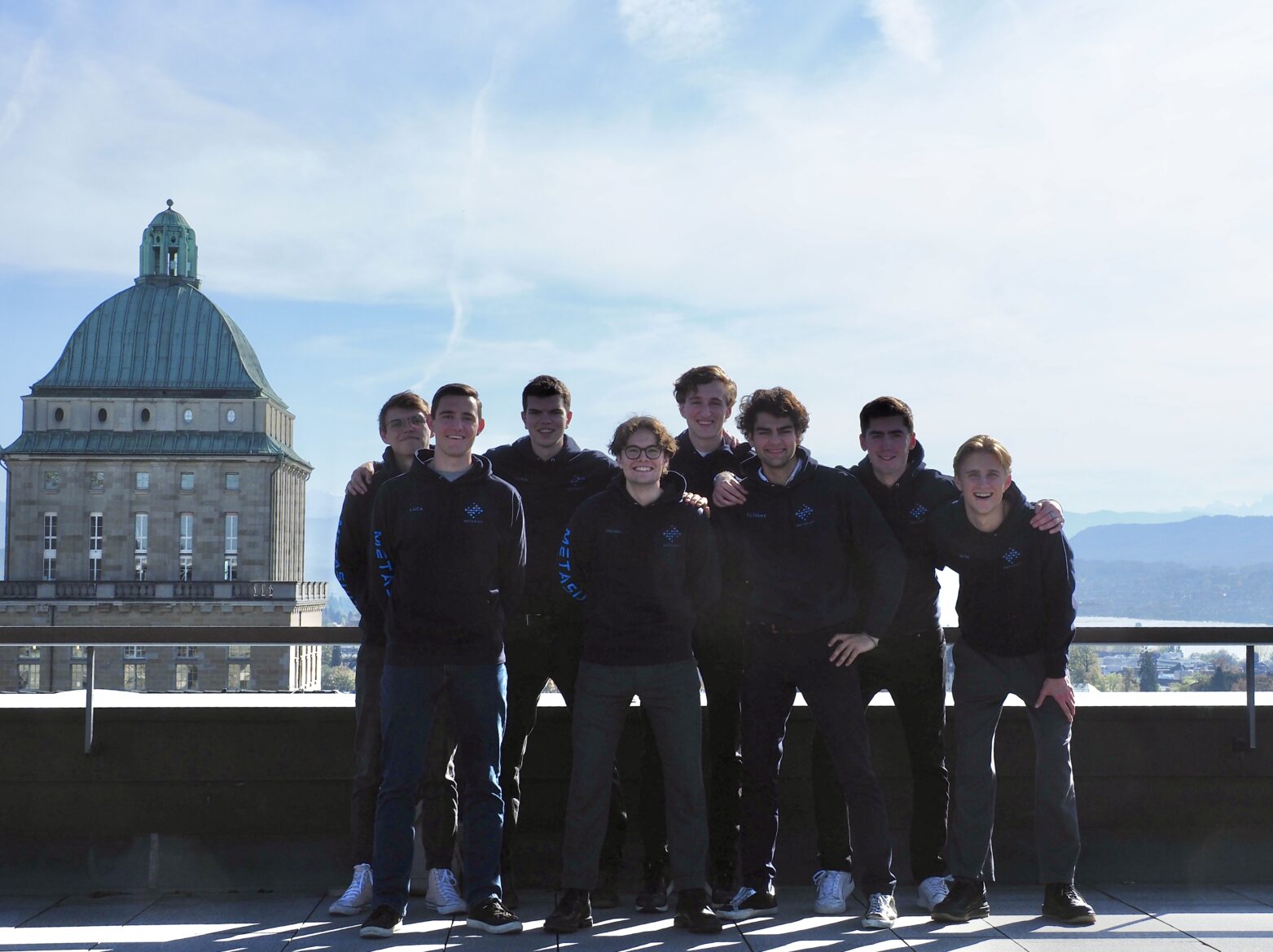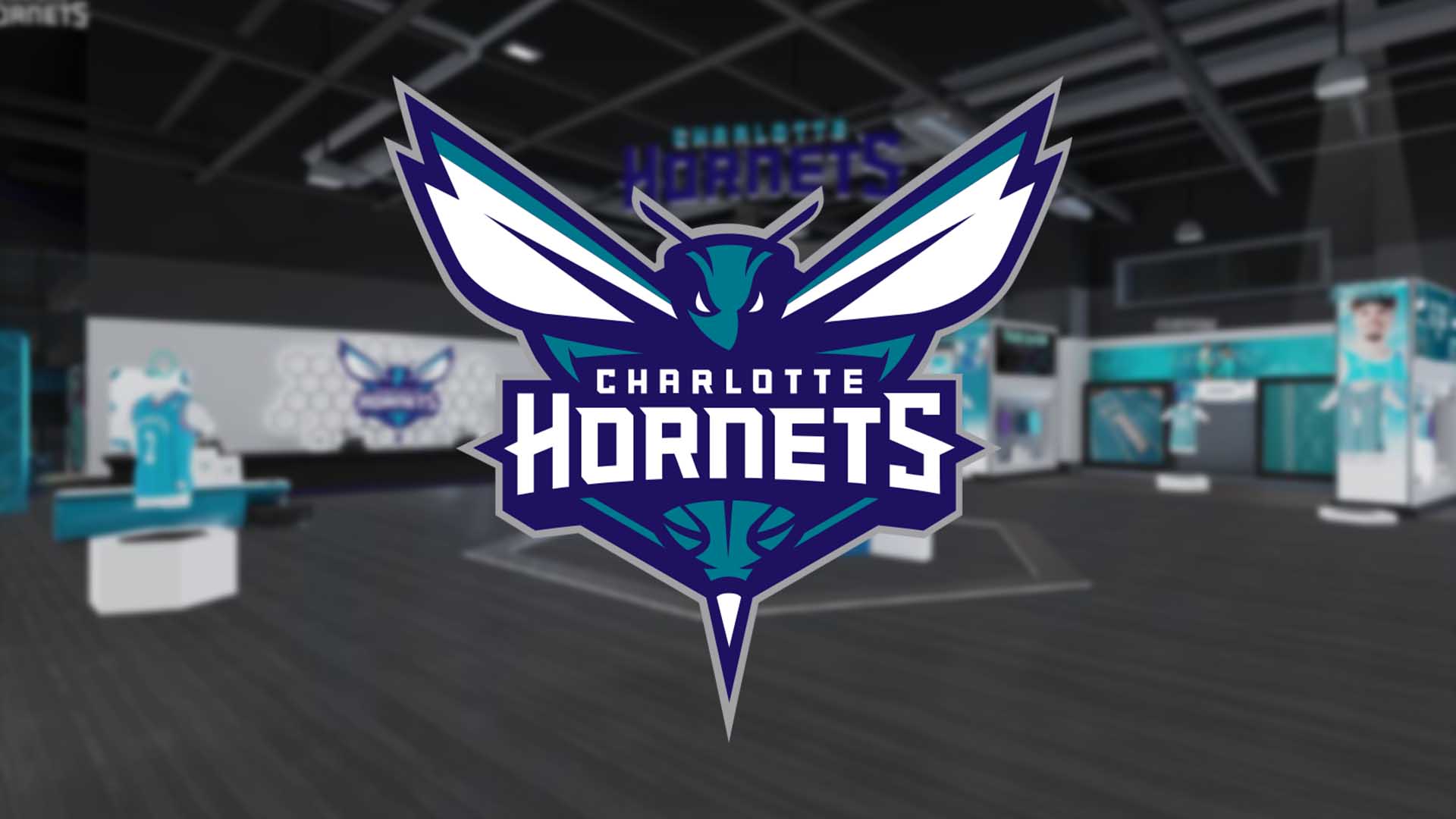A team of eight mechanical engineering students from the Swiss Federal Institute of Technology (ETH Zurich) has unveiled a remarkable suit for metaverse experiences. The suit allows users to experience the total sensory immersion of metaverse.
The innovative ‘Meta Suit’ is equipped with advanced sensors and soft, human-like muscles, revolutionizing the way people interact with virtual reality.
The primary objective of the suit is to provide users with a more natural and realistic experience within metaverse. Traditional virtual reality encounters often lack the ability to elicit genuine sensations. However, the Meta Suit aims to bridge this gap by incorporating cutting-edge technology called Hasel (hydraulically amplified self-healing electrostatic actuators), which mimics the movements and sensations of human muscles.
One of the key features of the Meta Suit is its use of artificial muscles that emulate the behavior of their human counterparts. These muscles respond to external stimuli, enabling wearers to perceive haptic feedback from the virtual environment. The muscles contract and expand by utilizing a minute electric current, creating an astonishingly authentic sensation for the user.

The development of the suit has the potential to revolutionize metaverse experiences, addressing one of its most significant challenges: The lack of tactile feedback. Many virtual reality enthusiasts have longed for the ability to feel and touch objects within the immersive virtual realm. The students’ innovative technology provides a solution, granting wearers the ability to interact with virtual elements and experience them as if they were physically present.
Unlike conventional camera-based tracking systems, the Meta Suit employs its own set of sensors to monitor and map human movements accurately. This eliminates the need for external cameras, enhancing the overall convenience and portability of the suit. With this advanced tracking capability, users can freely navigate metaverse and engage in a wide range of activities from gaming to virtual events and social interactions.
During initial tests, the engineers created a captivating virtual reality experience. In this simulated environment, participants were able to perceive the sensation of a bird gently landing on their outstretched hand. The muscles in the suit responded accordingly, providing a realistic and immersive encounter. The sheer marvel of this technological achievement astonished the engineers, as they marveled at the unprecedented feeling of being transported to an entirely different realm.
The Meta Suit’s groundbreaking capabilities have far-reaching implications. Even the recently unveiled Apple Vision Pro VR/AR headset, while impressive in many aspects, cannot provide users with the sensation of touch. Reviewers who had the opportunity to test the device expressed their yearning for tactile feedback. The Meta Suit, on the other hand, addresses this limitation, unlocking a new dimension of metaverse immersion.

Final Words
With the Meta Suit paving the way for enhanced sensory experiences within virtual reality, the future of metaverse appears more captivating than ever before. Users can look forward to exploring new frontiers, interacting with virtual environments, and truly feeling the digital world come alive. The groundbreaking technology developed by the talented engineers from ETH Zurich opens up endless possibilities for the future of virtual reality and beyond.














